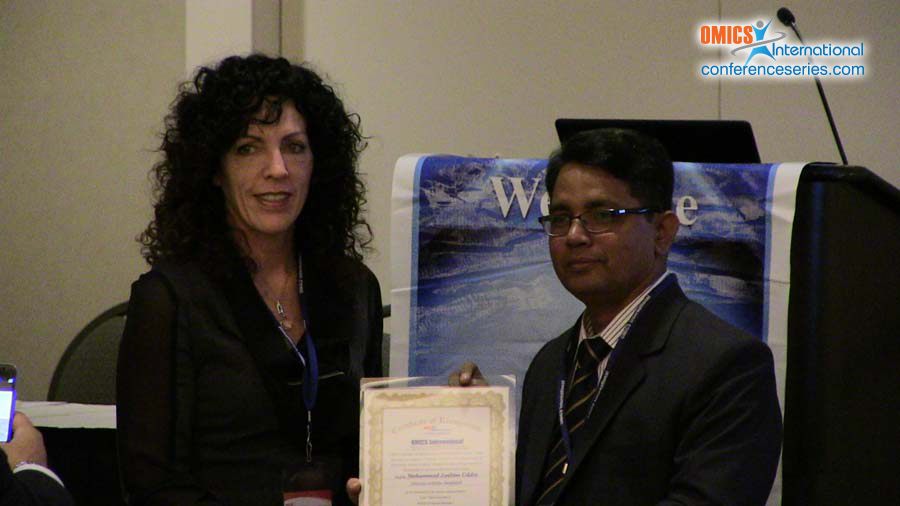
Mohammad Zashim Uddin
University of Dhaka, Bangladesh
Title: Ethnomedicinal study and consensus among the informants for the uses of medicinal plants of feni
Biography
Biography: Mohammad Zashim Uddin
Abstract
Ethno-medicinal study was conducted to identify and document plant species used for treatment of various ailments and to find out the level of consensus among informants regarding the uses of plants for particular disease categories. Information has been gathered between January to December 2014 from 65 informants using semi-structured interviews. The reported plants were collected, identified and preserved. The study was recorded115 medicinal plant species with 216 formularies to treat 69 ailments. These species belongs to 55 families. Such data indicated that the study area has plenty of medicinal plants with their diversity of health care uses. Ailment category cut and wounds attained the highest Fic value. Species used for this purpose are Mikania cordata, and Cynodon dactylon which were cited by many informants. Second highest Fic value was found in case of Dysentery and diarrhoea. Medicinal plants used for this purpose are Litsea glutinosa, Dalbergia sissu, Mangifera indica, Scoparia dulcis, Holarrhena antidysenterica, Stephania harnandifolia and Centella asiatica those were cited by a good number of informants. Since the Fic values attained highest, such plants could be recommended for further phytochemical study to isolate compounds. In our survey, 16 species has attained 100% Fl values. This Fl values means that the informants have a tendency to rely on one specific plant species for treating one certain ailment than several ailments. The study asserted that such species need to be protected in the study area to sustain traditional medicinal plants and culture.



